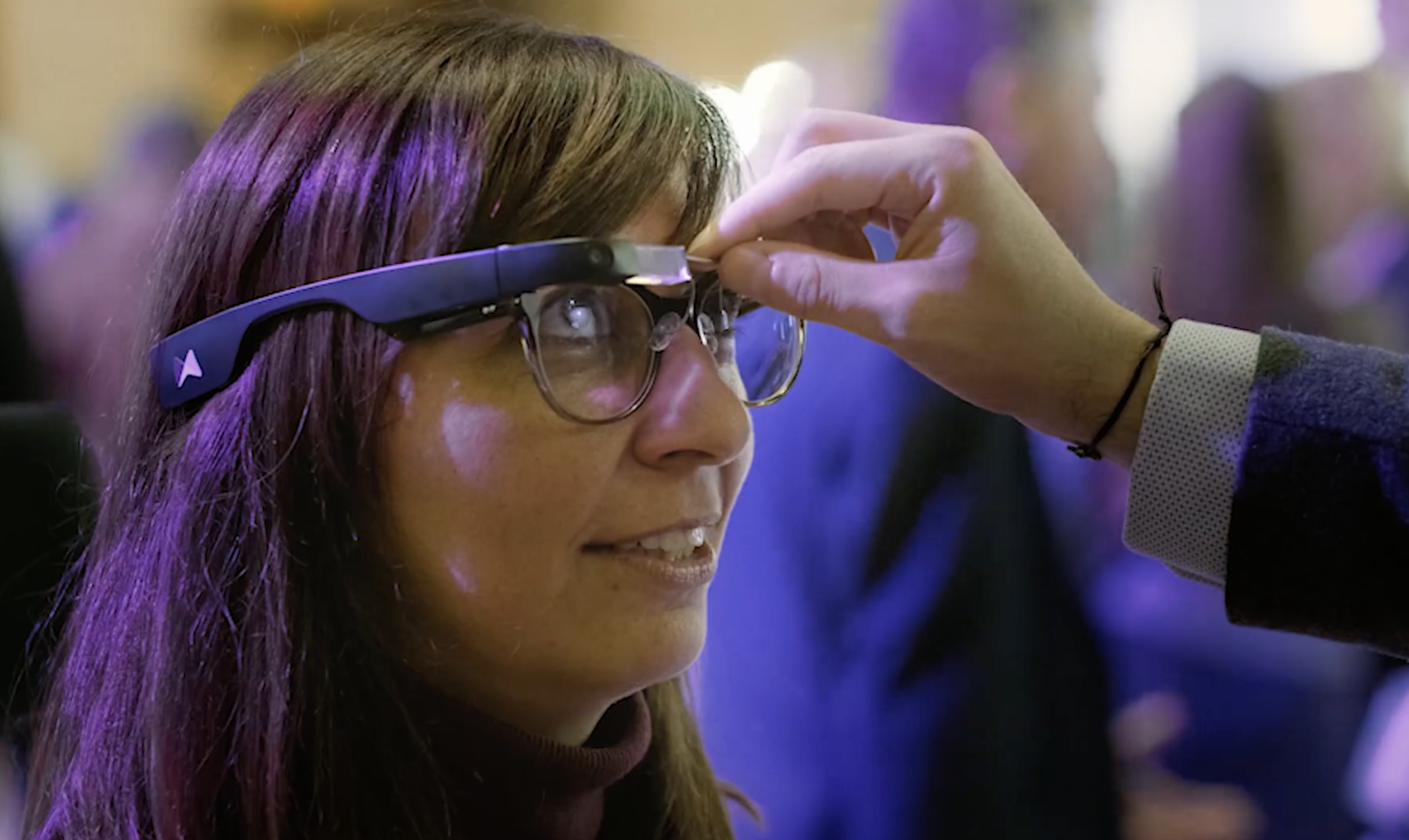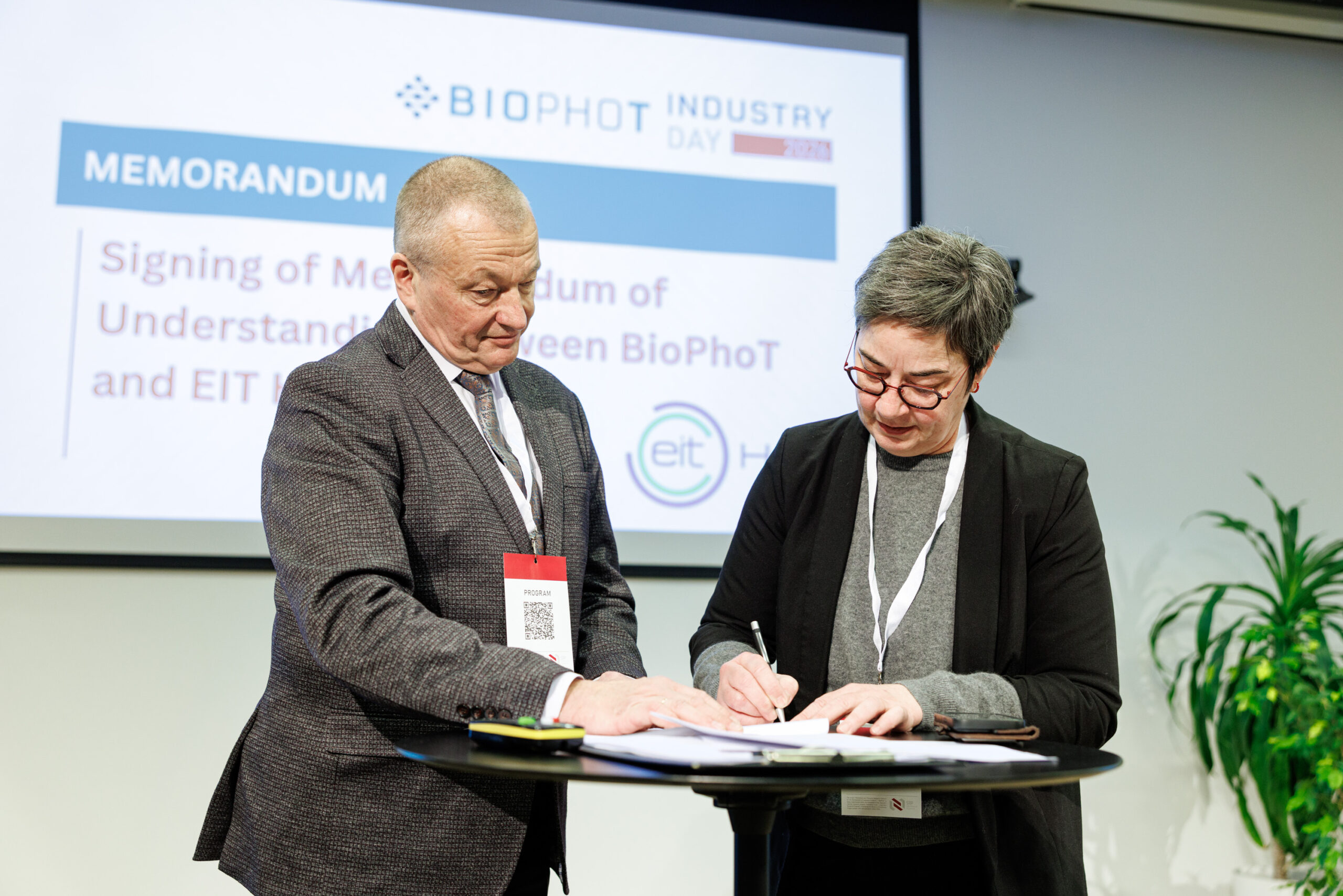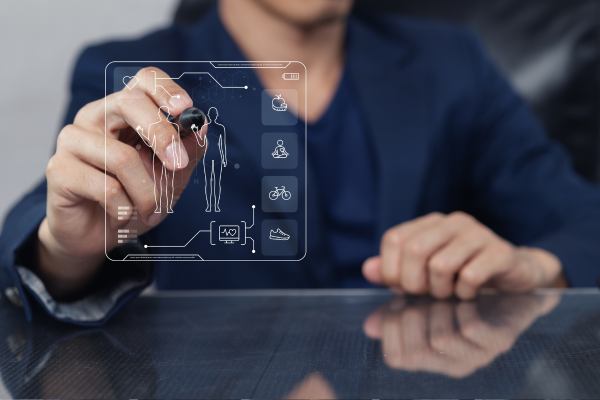1st October 2020
Event shines a light on solutions for healthy and active ageing
Every year on 1 October, the United Nation’s International Day of Older Persons highlights the contributions that older people make to society and raises awareness of the challenges they face. This year it shines a light on the ‘Decade of Healthy Ageing’ (2020-2030) – a plan that places older people at the centre and aims to help prevent disease and promote health as we age.
Healthy ageing is a central part of EIT Health’s goals to promote better health of citizens and contribute to a sustainable health economy in Europe. EIT Health CEO, Jan-Philipp Beck, believes that patient-centric innovation is key to addressing this demographic change and fostering healthy and active ageing in Europe.
He comments, “People aged 65 years or older will account for almost a third of the EU population by 2070, compared to just one fifth in 2019.”[1] “Furthermore, research shows that, in Europe, men and women at age 65 will live on average for another 18-21 years; 2 however, only nine of these years will be lived in good health.”[2]
This demographic shift will have an enormous impact on our society, on our health systems and most importantly on our older citizens. Therefore, it’s vital that innovation helps to develop life-changing products and services for older people that will improve their lives, and also allow them to keep actively participating in society.
Monique Epstein, Founder & Director of patient association e-Seniors, an EIT Health partner, stresses that in order to meet the needs of an ageing society, we should look to technology.
She comments: “During the pandemic, senior citizens realised the importance of tools such as Skype, Zoom and WhatsApp, which enabled them to stay in touch with their families and friends and thus not be marginalised. We need to empower seniors with digital tools in order to keep them as an integral and active part of our society, to increase their quality of life and have them co-create and design the online tools and services of the future; especially in the e-health domain.“
EIT Health supports a number of solutions that support healthy and active ageing for citizens:
FRADE – Technology to detect, screen and prevent falls in the elderly
The process of ageing impacts mobility, muscle strength and balance control which contributes to the increase of falls in this population. It is estimated that approximately one-third of people aged 65 years and older fall each year.[3] Among the elderly, falls are one of the main causes of injuries, physical incapacity and even death.[4]
Currently, there are a variety of solutions to address the individual stages of fall management – fall detection, fall risk assessment and fall prevention.
EIT Health project, FRADE, addresses all three stages simultaneously. It is composed of a bundle of components, namely a wearable sensor, a desktop application, an Android app and a backend server with web interface. When the sensors are worn, it is possible to monitor movements, detect falls and assess the physical activity of the wearer. Based on analysis of these data, the system can estimate the risk of a fall and also alert a caregiver whenever a fall is detected.
Swithome – Bringing rehabilitation home for stroke patients
The global incidence of stroke is set to increase by 50%, to 23 million annually by 2030 according to The Helsingborg Declaration 2006 on European stroke strategies.5 Of the 12 million new stroke survivors every year, two out of three experience impaired walking ability, resulting in a high risk of falling, reduced quality of life and social isolation.[5] The risk of having a stroke doubles every decade after the age of 55,[6],[7] meaning a disproportionate amount of stroke survivors are elderly.
EIT Health project SwitHome has created a solution to allow stroke survivors to undergo rehabilitation at home. The SwitHome smart insoles record walking data such as patients’ stride distance and gait and also map the pressure at different points. A Smartphone app and a telemedicine platform then enable the specialist to monitor the patient’s progress and adapt the rehabilitation plan to suit. As well as providing the specialists with this necessary monitoring information, the system also gives patients real-time feedback to optimise rehabilitation.
https://eithealth.eu/project/swithome/
INFINITy – Empowering functional independence of people with mild cognitive impairments (MCI)
An increasing number of older people are unable to live independently or actively participate in society due to age-related cognitive impairments. This situation gives rise to a lower quality of life, greater burden for family and caregivers and an increasing need for healthcare.
INFINITy has developed a solution that brings existing technologies together to create a system that allows people with MCI to live more independently and leave their home without supervision whilst slowing down the progression of the disease. The innovation combines smartphone capabilities and near-field communication (NFC) – through an app, wristband and NFC tags – to automate a wide set of functions related to activities of daily living. It is unobtrusive, easy to use and helps to guide people living with MCI.
INFINITy contributes to empowering social activity and self-confidence, safeguarding independence and preserving functional abilities by providing support for both indoor and outdoor activities.
https://eithealth.eu/project/infinity/
FRAIL – Frailty assessment in daily living
Frailty is a distinctive health state related to the ageing process in which multiple body systems gradually lose their in-built reserves.[8] It is essential that frailty is identified to enable health and social care professionals to prevent negative outcomes and start a pathway of care to address the issues contributing to it. At present, the available instruments for assessing frailty are time consuming and difficult to use in primary care, which is where it is often first identified.
To address this need, EIT Health project FRAIL is developing a smartwatch app to detect and monitor frailty amongst elderly people. The app will be deployed as a new key feature of LOLA, an existing health-monitoring and fall detection app for the elderly. The app will measure three key aspects of frailty – low walking speed, low physical activity and exhaustion – automatically.
https://eithealth.eu/project/frail/
PersoCo – Personalised digital self-management for cognitive assessment and rehabilitation
With ageing comes an increased likelihood of developing memory problems caused by normal age-related cognitive decline. Despite its proven efficacy, cognitive training is only available to a very small group of people with clinically diagnosed cognitive impairment, and not to those with subjective cognitive decline (SCD) – self-reported experience of confusion, or memory loss. Because SCD is self-reported, it does not imply a diagnosis of cognitive decline by a healthcare professional, and therefore is less likely to be addressed.[9],[10]
EIT Health-backed project PersoCO has developed an integrated mobile app with a brief assessment of memory problems and a cognitive intervention module. The app has been designed specifically for elderly people who experience SCD. The inclusion of the cognitive intervention module enables the app to personalise feedback and motivational techniques to offer bespoke training. By digitising cognitive training, PersoCo hopes to make it accessible to a much larger group of people to delay further cognitive decline in the elderly population.
https://eithealth.eu/project/persoco/
AreYouOkayToday? – remote monitoring that doesn’t compromise privacy
AreYouOkayToday? is a success story from EIT Health’s Silver Starters programme which delivers health innovation for older people, by older people.
Developed by 83-year-old Han van Doorn, the home technology system is designed to help caregivers, friends and family remotely monitor the movements of their elderly loved ones in their home.
The system uses electric appliances that are already present in the house such as a kettle, television or smartphone and learns the normal daily usage pattern of these devices. Using an app that shows red, yellow or green traffic light signals, friends, family and caregivers are able to check whether there is a deviation in this pattern at any time and see whether everything is still okay, without affecting the privacy of their loved one.
https://eithealth.eu/project/silver-2/
HomeCare@COPD – enabling COPD patients to receive care at home
Chronic Obstructive Pulmonary Disease (COPD) is a progressive, life threatening lung disease characterised by breathlessness and coughing. In Europe, COPD prevalence is 4–10% of the adult population.[11]
EIT Health project HomeCare@COPD strives to improve intensive care at home for people with lung disease by using RAS-Q, a so-called “lung in a backpack”. A portable respiratory assist device for long-term COPD treatment, RAS-Q.
The long-term goal of RAS-Q is to transition COPD patients safely from hospitals to homecare. To achieve this, HomeCare@COPD generates feedback and insights from COPD patients. Based on these findings, peripherals, including the carrier system, are developed to optimise the product so it better meets the demands of patients.
https://eithealth.eu/project/homecarecopd/
PIPRA – pre-empting cognitive surgical complications
Post-operative delirium (POD) and post-operative clinical decline (POCD) are conditions that can strike after surgery. Patients experience disorientation, memory loss and speech difficulties. POCD and POD incidence is significant – they impact more than one in four patients over the age of 60 following surgery.[12]
EIT Health supported PIPRA is developing an AI-based pre-operative test to assess patients’ risk of suffering from cognitive disorders after surgery.
PIPRA helps clinicians evaluate the risks of neurocognitive complications for their patients undergoing surgery and allow them to adopt protective personalised peri-operative measures. It also allows clinicians to make their patients aware of potential cognitive surgical complications on the basis of an unbiased and data-driven score calculated from accepted risk factors in the field.
https://wildcard.eithealth.eu/case-study/pipra/
Ageing@EITHealth – training a new generation in the science of ageing
With a rapidly increasing older generation, targeted education is needed to help meet their needs and understand how to help keep ageing brains active.
EIT Health Ageing PhD School (Ageing@EITHealth) is a pan-European collaboration of EIT Health academic and non-academic partners working to train a new generation of PhD specialists in gerontology, neuroscience and epidemiology. This international, cross-sectoral programme is based on accredited PhD core programmes complemented with robust EIT Health-based innovation and entrepreneurship training. It involves a multi-university portfolio of advanced teaching in brain ageing, as well as international mobility and co-mentorship of each PhD thesis in universities, hospitals and companies.
https://eithealth.eu/project/epidemprev/
Healthy Loneliness – using social stimulation to combat loneliness
Loneliness has a wide range of negative effects on both physical and mental health[13].
The EIT Health Healthy Loneliness project will provide the elderly and vulnerable with tools to tackle their loneliness, increase self-esteem, and understand that living alone does not mean living in loneliness.
Healthy Loneliness presents an educational programme to create an enabling environment to minimise the negative effects of loneliness in the elderly. It includes face-to-face sessions which will deliver a set of tailored educational materials by introducing behavioural changes based on stronger social interactions.
https://eithealth.eu/project/healthy-loneliness/
ACTIVEHIP – tools and guidance to maximise hip fracture recovery
ACTIVEHIP provides training to help people recover from hip fractures, a process that is known to be challenging: one year after a hip fracture, 80% of patients are still limited in their daily activities.[14]
Co-designed with patients, caregivers, sport scientists and doctors, the solution specifically aims to help prevent secondary fractures. It is a remote tool, monitored by healthcare professionals, that extends the assistance people receive after they leave hospital.
https://eithealth.eu/project/activehip/
CARE Campus – Caregiving and Ageing Reimagined for Europe
“People are living longer, will have more coexisting diseases later in life, and will need support later in life. Consequently, care for older adults is becoming more complex, and those who work as caregivers will have the greatest need for quality education”, comments Eric Asaba, Principal Investigator of CARE Campus and Associate Professor in Occupational Therapy at Karolinska Institutet, KI, Sweden.
CARE Campus aims to provide quality training for caregivers providing care for older adults in Europe. The programme is unique in both its outreach and design and the aim is to become an EU standard. The courses are available online to anyone who signs up and have been designed to suit both professional and family caregivers – a novel approach to meet the education needs of all caregivers. To date, CARE has resulted in ten qualitative courses available online and between December 2018 and November 2019 as many as 11,983 students were registered.
FFallS Predictor – early falls detection and prevention
Falls are the most common reason for older adults to attend emergency departments. New mechanisms are needed to monitor early risk factors: to advance prevention and management of these conditions; and to improve healthcare and support independent living.
FFallS Predictor is an implantable monitoring device that has proven that 28% of falls in older adults are directly attributable to modifiable heart rate and rhythm changes. An implantable system can provide real time solutions for early falls detection and prevention.
This project will mature and refine untapped capabilities (such as posture and gait assessment) of an implantable monitoring device for detection of frailty and falls risk, and compare it to standard clinical assessments. Project partners will develop clinical algorithms to help manage, treat and prevent frailty and falls. The device will be made available in the market to improve healthcare monitoring systems and improve understanding of the triggers associated with falls.
https://eithealth.eu/project/ffalls-predictor/
References
[1] The impact of demographic change in Europe, European Commission, https://ec.europa.eu/info/strategy/priorities-2019-2024/new-push-european-democracy/impact-demographic-change-europe_en
[2] International Day of Older Persons, United Nations, https://www.un.org/en/events/olderpersonsday
3 Pin, S. and Spini, D. (2016). Impact of falling on social participation and social support trajectories in a middle-aged and elderly European sample. SSM – Population Health, [online] 2, pp.382–389. Available at: https://www.ncbi.nlm.nih.gov/pmc/articles/PMC5757958/ [Accessed 29 Mar. 2020].
[4] Terroso, M., Rosa, N., Torres Marques, A. and Simoes, R. (2013). Physical consequences of falls in the elderly: a literature review from 1995 to 2010. European Review of Aging and Physical Activity, 11(1), pp.51–59.
[5] Norrving, B. (2007). The 2006 Helsingborg Consensus Conference on European Stroke Strategies. International Journal of Stroke, 2(2), pp.139–143. Available at: https://journals.sagepub.com/doi/10.1111/j.1747-4949.2007.00109.x
[6] Brown RD, Whisnant JP, Sicks RD, O’Fallon WM, Wiebers DO (1996). Stroke incidence, prevalence, and survival: secular trends in Rochester, Minnesota, through 1989. Stroke. 1996;27:373-380
[7] Wolf PA, D’Agostino RB, O’Neal MA, Sytkowski P, Kase CS, Belanger AJ, Kannel WB (1992). Secular trends in stroke incidence and mortality: the Framingham Study. Stroke. 1992;23:1551-1555
[8] Turner, G. (2014). Introduction to Frailty, Fit for Frailty Part 1. British Geriatrics Society, [online] Available at: https://www.bgs.org.uk/resources/introduction-to-frailty [Accessed 8 Sept. 2020]
[9] Healthy Brain Initiative, Centers for Disease Control and Prevention, https://www.cdc.gov/aging/healthybrain/
[10] Jessen F, Amarigliod RE, et.al, Subjective Cognitive Decline Initiative (SCD-I) Working Group, A conceptual framework for research on subjective cognitive decline in preclinical Alzheimer’s disease, Alzheimers Dement. 2014 November; 10(6): 844–852.
[11] European COPD Coalition. “About COPD: Prevalence in EU.” Copdcoalition.eu Available at: http://www.copdcoalition.eu/about-copd/prevalence
[12] Inouye, S.K. et al. Postoperative Delirium in Older Adults : Best Practice Statement from the American Geriatrics Society. 2015. JACS, 220. 2: 16-148
[13] Hämmig O. Health risks associated with social isolation in general and in young, middle and old age. PLoS One. 2019;14(7):e0219663. Published 2019 Jul 18. doi:10.1371/journal.pone.0219663
[14] Am J Med.1997 Aug 18;103(2A):12S-17S; discussion 17S-19S. doi: 10.1016/s0002-9343(97)90022-x. Available at: https://pubmed.ncbi.nlm.nih.gov/9302893/
When Ideas Meet Ambition - How Impact Happens at EIT Health

How Impact Happens at EIT Health
EIT Health and BioPhoT Sign Memorandum of Understanding to Strengthen Health Innovation Collaboration

Strengthening health and life-science innovation in Latvia
